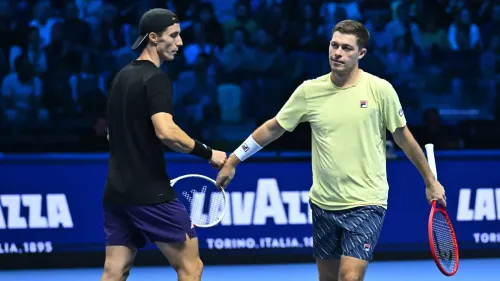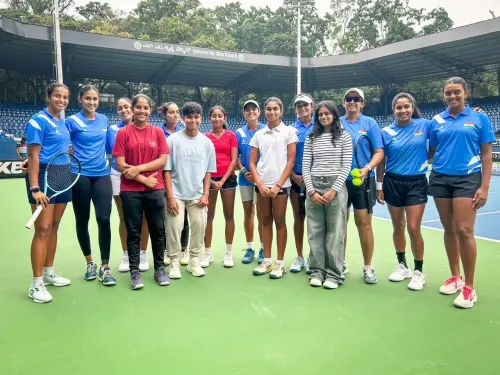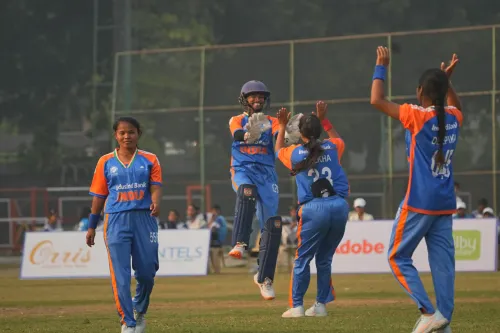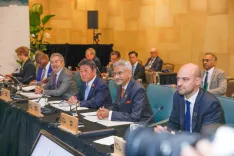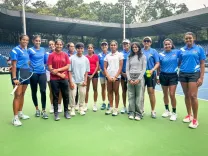What’s the Buzz about the India vs Pakistan Asia Cup Clash?
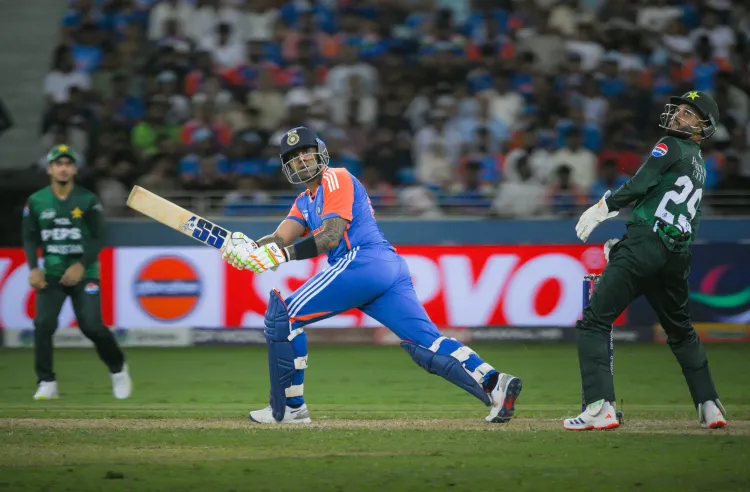
Synopsis
Key Takeaways
- Focus on the Handshake: The absence of the handshake in the last match has created significant buzz.
- Historical Rivalry: India and Pakistan matches are steeped in history and national pride.
- Last Match Recap: India dominated the last encounter with a convincing victory.
- Squads: Both teams have formidable lineups, with key players capable of turning the game.
- Super Four Format: Understanding the round-robin structure is essential for following the tournament.
Dubai, Sep 19 (NationPress) As the much-anticipated rematch between India and Pakistan approaches in the Asia Cup Super Four on September 21, fans are filled with a blend of excitement, tension, and a storyline that’s captivating everyone—the handshake.
Their previous encounter was anything but ordinary. A notably empty stadium mirrored the public's apprehension following the devastating Pahalgam terror attack, raising questions about whether the match should have proceeded.
Nevertheless, the game took place. India’s captain, Suryakumar Yadav, propelled his team to a decisive victory but notably abstained from the traditional handshake with the Pakistani players— a quiet yet significant gesture amid rising national sentiments. On the field, India exhibited complete dominance while Pakistan found it difficult to pose any real challenge.
Experts had already indicated a muted atmosphere due to Pakistan’s erratic performance and vulnerable lineup. As both teams gear up for their next face-off, the narrative remains largely unchanged: India stands as the favorite, while Pakistan will need an almost flawless display to shift the momentum.
Even in a predictable matchup, spectators will remain glued to their screens. Clashes between India and Pakistan transcend mere runs and wickets—they encompass decades of rivalry, national pride, and intense drama. Every delivery, wicket, and over sparks discussions, memes, and global social media activity.
The Handshake Watch
This time, all eyes will be fixated on the handshake. In the first match, Team India intentionally bypassed the traditional post-match handshake with Pakistan, making headlines globally. As the two teams prepare to meet again, this gesture—or absence thereof—has evolved into a story of its own. Will India uphold the boycott? Fans, analysts, and former players are already chiming in, while social media is buzzing with speculations, debates, and memes.
Last Match Recap
India limited Pakistan to 127/9, with Kuldeep Yadav (3/18), Axar Patel (2/18), and Jasprit Bumrah (2/28) dismantling their batting order. Abhishek Sharma (31 off 13) and Suryakumar Yadav (47*) propelled India to a 7-wicket victory in just 15.5 overs, solidifying their position at the top of Group A.
Squads
India: Suryakumar Yadav (C), Shubman Gill (VC), Sanju Samson (WK), Abhishek Sharma, Tilak Varma, Rinku Singh, Hardik Pandya, Shivam Dube, Kuldeep Yadav, Axar Patel, Jitesh Sharma (WK), Harshit Rana, Arshdeep Singh, Varun Chakravarthy, Jasprit Bumrah
Pakistan: Salman Ali Agha (C), Abrar Ahmed, Faheem Ashraf, Fakhar Zaman, Haris Rauf, Hasan Ali, Hasan Nawaz, Hussain Talat, Khushdil Shah, Mohammad Haris (WK), Mohammad Nawaz, Mohammad Waseem Jnr, Sahibzada Farhan (WK), Saim Ayub, Salman Mirza, Shaheen Afridi, Sufyan Moqim
Asia Cup History
India: 8 titles (1984, 1988, 1990/91, 1995, 2010, 2016 T20I, 2018, 2023)
Pakistan: 2 titles (2000, 2012)
Super Four Stage Format
The Super Four follows a round-robin structure, with each team facing the others once. The top two squads advance to the final.
Points: two for a win, one for a no-result. Net run rate breaks ties.
Whether this matchup results in another commanding win for India or an unexpected upset for Pakistan, this contest represents more than just a game—it embodies history, tension, cricketing prowess, and the intrigue of a handshake that everyone is keenly observing.

